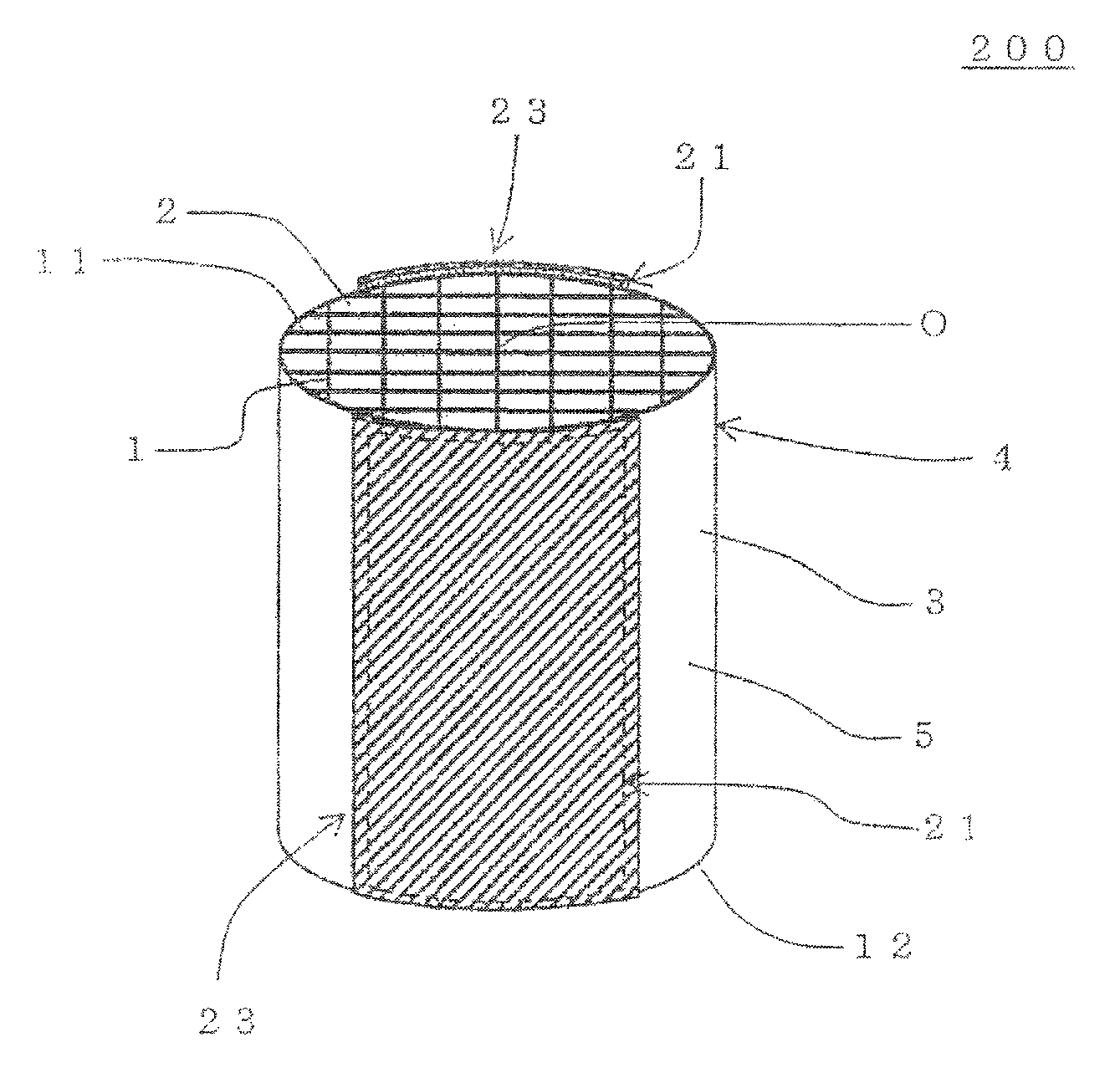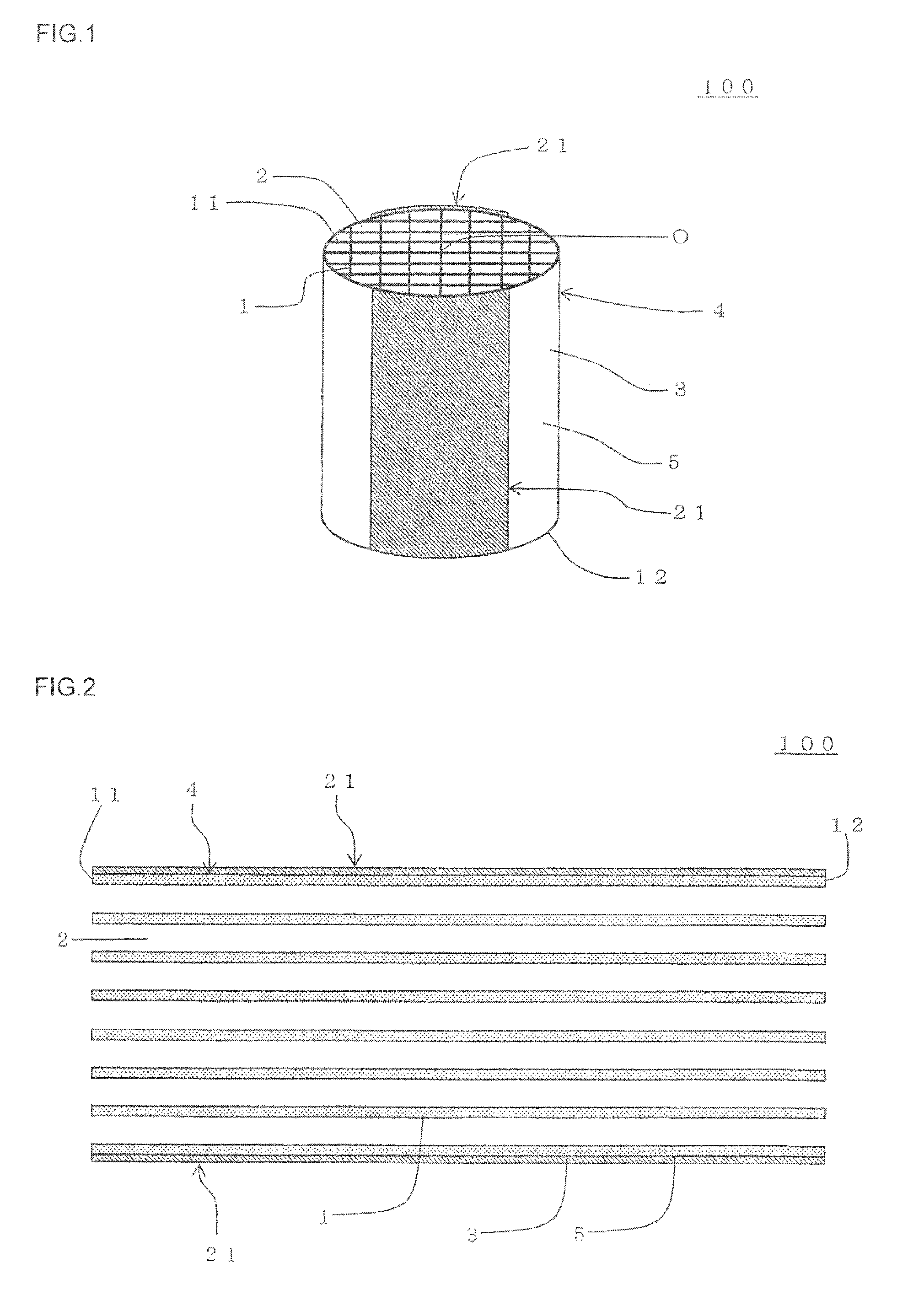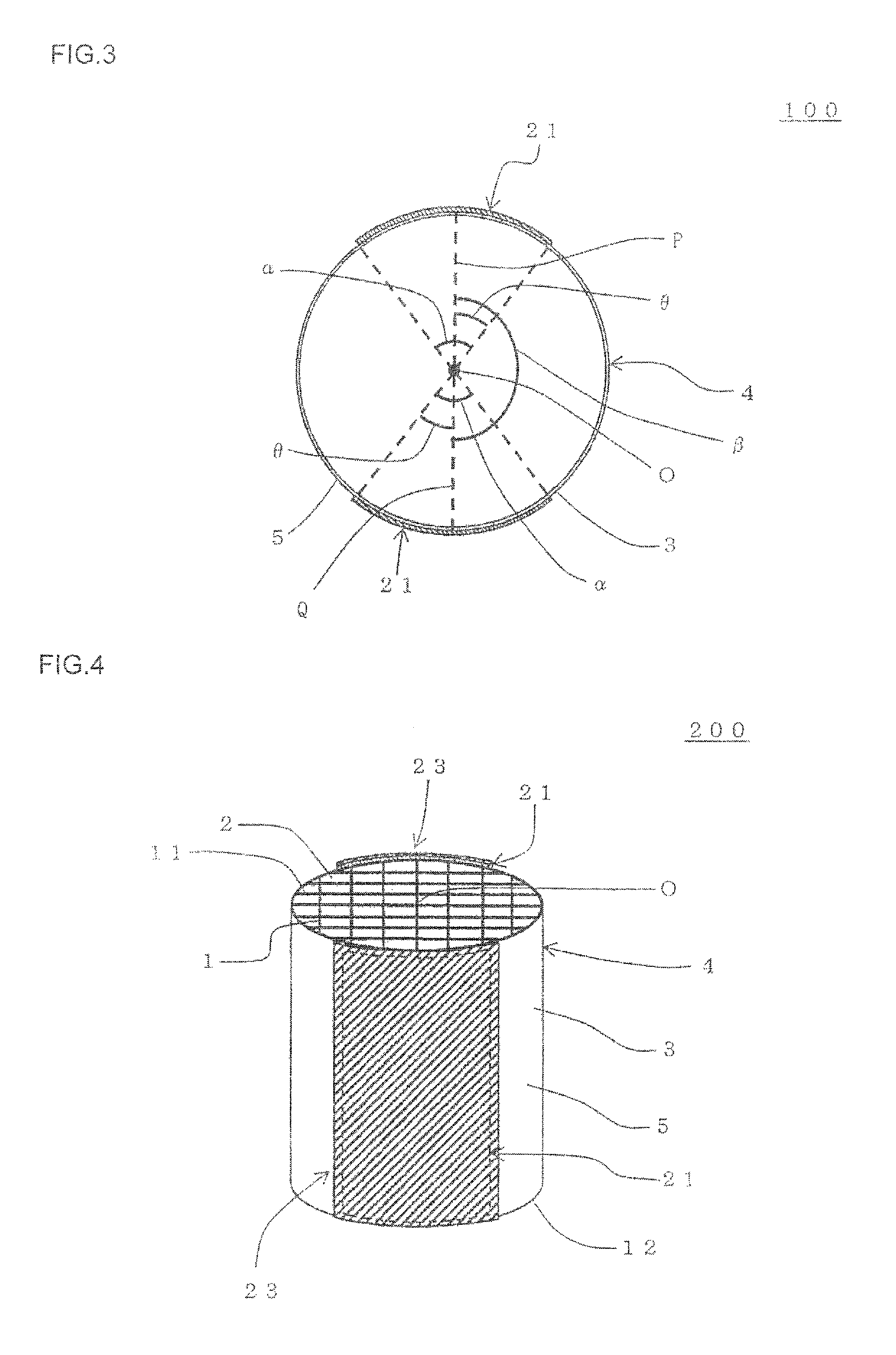Honeycomb structure and manufacturing method of the same
a honeycomb structure and manufacturing method technology, applied in the field of honeycomb structure, can solve the problems of not easily flowing, heat is not sufficiently generated in a portion through which the current cannot easily flow, and the portion which is not easily heated is created in the honeycomb structure body, so as to reduce the uneven heat generation and reduce the electric resistance of the electrode section
- Summary
- Abstract
- Description
- Claims
- Application Information
AI Technical Summary
Benefits of technology
Problems solved by technology
Method used
Image
Examples
example 1
[0124]Silicon powder, silicon carbide powder, cordierite powder as oxide particles, methylcellulose, glycerin, a polyacrylic dispersant and water were mixed by a rotation and revolution type stirrer, to prepare an electrode section forming raw material.
[0125]As the silicon powder, 52 g of silicon powder having an average particle diameter of 5 μm and a density of 2.33 g / cm3 was used. As the silicon carbide powder, 48 g of silicon carbide powder having an average particle diameter of 3 μm and a density of 3.17 g / cm3 was used. As the cordierite powder, 5.0 g of cordierite powder having an average particle diameter of 2 μm and a density of 2.65 g / cm3 was used. Furthermore, an amount of methylcellulose to be used was 0.8 g, an amount of glycerin to be used was 9 g, and an amount of the polyacrylic dispersant to be used was 0.1 g. Furthermore, an amount of the water as a dispersion medium to be used was 40 g.
[0126]Furthermore, a honeycomb forming raw material for preparing a honeycomb st...
example 2
[0131]The procedures of Example 1 were repeated except that as an electrode section forming raw material, 58 g of silicon powder of 5 μm, 42 g of silicon carbide powder of 3 μm and 5.0 g of cordierite powder of 2 μm were used, to prepare a honeycomb structure. Densities of the silicon powder, the silicon carbide powder and the cordierite powder were the same values as in Example 1.
example 3
[0132]The procedures of Example 1 were repeated except that as an electrode section forming raw material, 58 g of silicon powder of 2 μm, 42 g of silicon carbide powder of 3 μm and 5.0 g of cordierite powder of 2 μm were used, to prepare a honeycomb structure. Densities of the silicon powder, the silicon carbide powder and the cordierite powder were the same values as in Example 1.
PUM
| Property | Measurement | Unit |
|---|---|---|
| electrical resistivity | aaaaa | aaaaa |
| atomic number | aaaaa | aaaaa |
| porosity | aaaaa | aaaaa |
Abstract
Description
Claims
Application Information
 Login to View More
Login to View More - R&D
- Intellectual Property
- Life Sciences
- Materials
- Tech Scout
- Unparalleled Data Quality
- Higher Quality Content
- 60% Fewer Hallucinations
Browse by: Latest US Patents, China's latest patents, Technical Efficacy Thesaurus, Application Domain, Technology Topic, Popular Technical Reports.
© 2025 PatSnap. All rights reserved.Legal|Privacy policy|Modern Slavery Act Transparency Statement|Sitemap|About US| Contact US: help@patsnap.com



